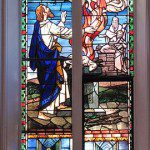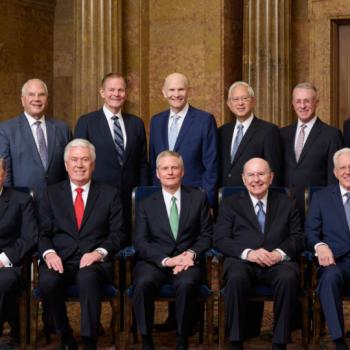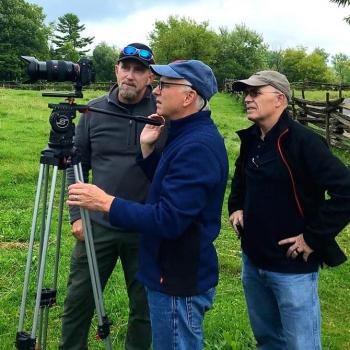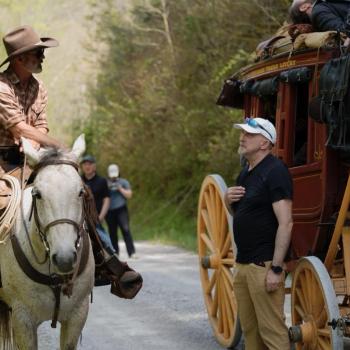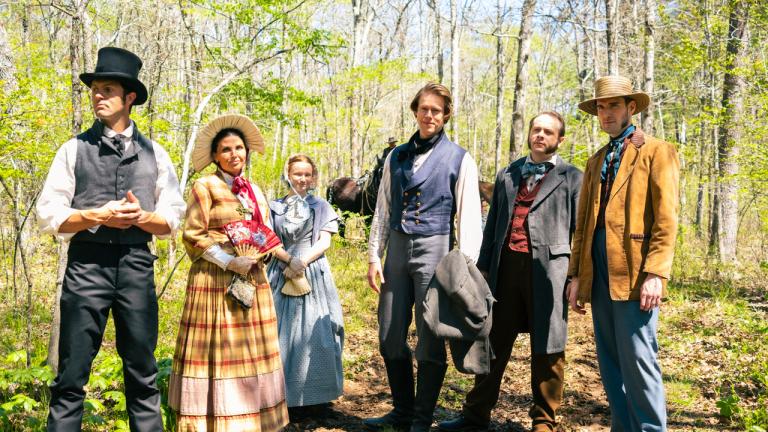
I published this article in Meridian Magazine on Wednesday, 1 May 2024. But I have been so very busy over the past week or so that I neglected to call your attention to it: “A Puzzling Mystery in the Last Chapters of Mark.”
I hope that you might perhaps find it interesting, and maybe even helpful.
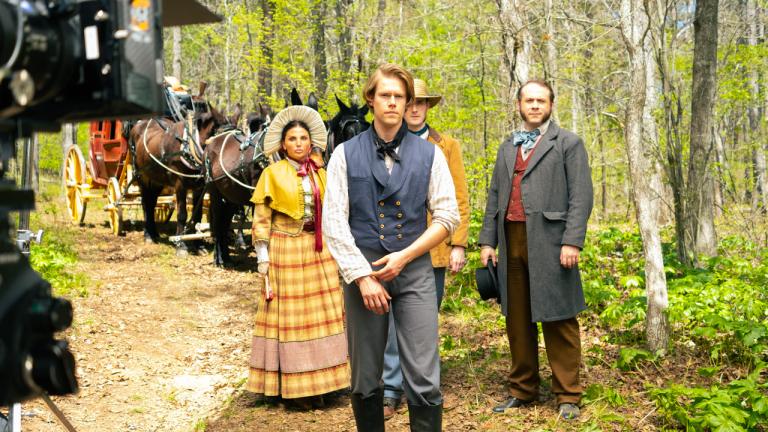
As I mentioned in my previous blog entry, I spent the first part of yesterday with a Scripture Central film crew in the Kirtland Temple and the Newel K. Whitney store. Then I spent the rest of the day (and into the early hours of this morning) returning home. We were all seated and waiting on a plane in Detroit when it was finally determined that, owing to problems with its sanitation system, it could not be flown. Which led to a long delay, the finding of another airplane, the transfer of crew, flight attendants, passengers, and baggage to the second plane, and a very, very late (or, depending on your vantage point, a very, very early) arrival in Salt Lake City. So I’m playing catch-up here. Happily, though, there is quite a bit on which to catch up.
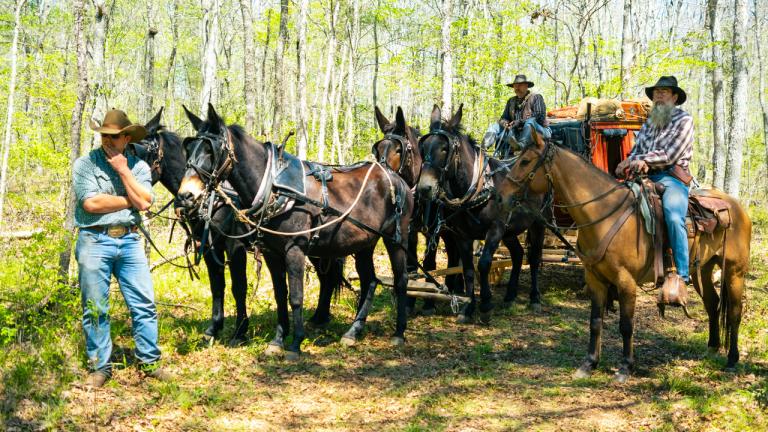
Two new articles appeared on the Interpreter Foundation website today:
““That They May Once Again Be a Delightsome People”: The Concept of Again Becoming the Seed of Joseph (Words of Mormon 1:8 and Mormon 7:4–5),” written by Matthew L. Bowen
Abstract: In Words of Mormon 1:8, Mormon declares, “And my prayer to God is concerning my brethren, that they may once again come to the knowledge of God, yea, the redemption of Christ; that they may once again be a delightsome people.” The expression “that they may once again” plausibly reflects the Hebrew idiom wayyôsipû or wayyôsipû ʿôd. Mormon’s apparent double-use of the wayyôsipû (ʿôd) idiom in Words of Mormon 1:8 (or some Nephite scribal equivalent), like 2 Nephi 5:2–3, recalls language in the Joseph story (Genesis 37:5, 8). The original Lamanite covenant, as an extension of the Abrahamic covenant, involved the complete abandonment of fraternal hatred and the violent means through which they had given expression to it (see Alma 24:12–13; 15–18); Mormon declared that a similar commitment would again be necessary when the descendants of Lehi (“the remnant of this people who are spared,” Mormon 7:1) were restored to the covenant in the future (Mormon 7:4–5). Thus, Mormon’s prayer—in the tradition of the prayers of Nephi, Enos, and others—is that the descendants of the Lamanites (and Nephite dissenters) would, through iterative divine action, regain their covenant identity as the seed of Joseph and partakers of the Abrahamic covenant.
“Interpreting Interpreter: The Seed of Joseph Once Again,” written by Kyler Rasmussen
This post is a summary of the article ““That They May Once Again Be a Delightsome People”: The Concept of Again Becoming the Seed of Joseph (Words of Mormon 1:8 and Mormon 7:4–5)” by Matthew L. Bowen in Volume 61 of Interpreter: A Journal of Latter-day Saint Faith and Scholarship. All of the Interpreting Interpreter articles may be seen at https://interpreterfoundation.org/category/summaries/. An introduction to the Interpreting Interpreterseries is available at https://interpreterfoundation.org/interpreting-interpreter-on-abstracting-thought/.
The Takeaway: Bowen argues that the phrase “that they may once again” in the Book of Mormon could represent wordplay on the name Joseph, and that its application to the Lamanites (e.g., “that they may once again become a delightsome people”) implies the overcoming of fraternal hatred and their eventual covenantal restoration as the seed of Joseph.
And this appeared on the website yesterday: Hugh Nibley Observed: “Beyond Scholarship: Scenes behind the Nibley Written Legacy,” written by John W. Welch
“I am very pleased to speak at this occasion, on this program, in honor of the centennial of Hugh Nibley’s birth on March 27, 1910, and to mark the completion of the Collected Works of Hugh Nibley. We miss Hugh in many ways, he having died five years before his signature series was finally completed. I hope that my comments here will help the next generation of serious readers, genuine disciples, and broad-gauged scholars everywhere to find, appreciate, and make solid use of the valuable written contributions generously left behind for us by our inspiring mentor, dedicated friend, and gleeful gadfly, Hugh Nibley.”
Part of our book chapter reprint series, this article originally appeared in Hugh Nibley Observed, edited by Jeffrey M. Bradshaw, Shirley S. Ricks, and Stephen T. Whitlock. For more information, go to https://interpreterfoundation.org/books/hugh-nibley-observed/.
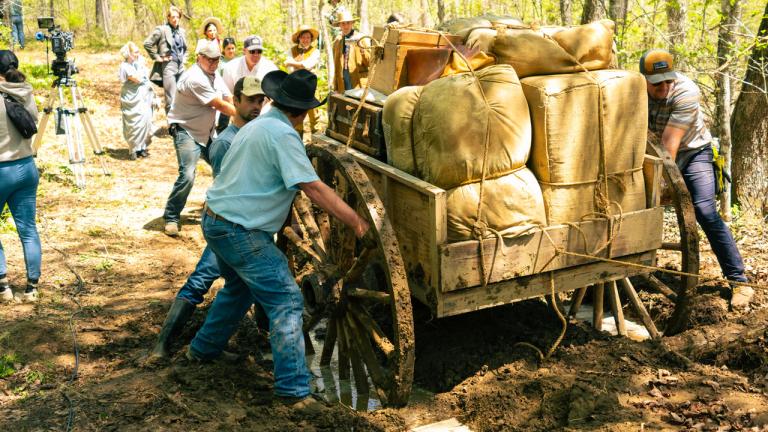
I also want to call your attention to this note from his family with regard to an upcoming event that will honor a dear friend and a longtime associate. The full text of the note appears on the Interpreter Foundation website: “Celebration for George L. Mitton”:
Dear family and friends,
We wanted to make you aware of a celebratory event being held for my father George L. Mitton on Friday, May 10th from 7:00 pm. It will be held in the second floor meeting area of his apartment building:
Legacy Village Provo
4146 North University Ave.
Provo, UT 84604The occasion will mark the introduction of a new book which compiles some of his published essays by the Interpreter Foundation – where he has volunteered on the Board of Advisors since its inception in 2003. As you may know, Dad will turn 97 this year and it is remarkable that he is still publishing! The book is entitled Joseph Smith and our Preparation for The Lord’s Final Judgment and will be available on Amazon.
We would enjoy seeing you at this get-together if circumstances allow.
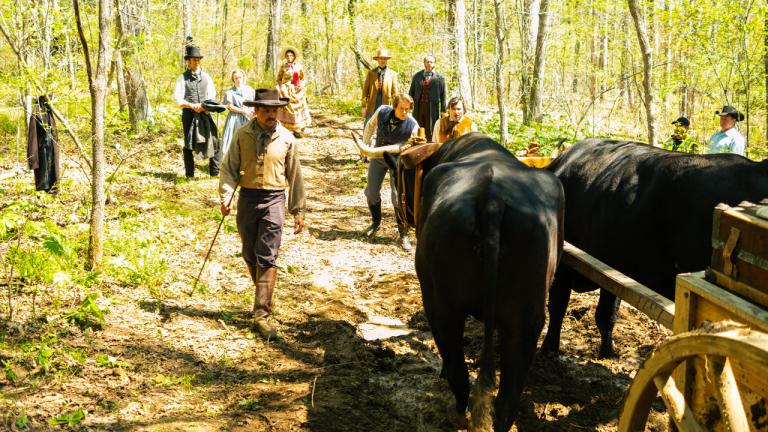
At sunset on 21 January 1836, the presidency of the Church of Jesus Christ of Latter-day Saints and several others, including Joseph Smith’s scribe Warren Parrish and the bishoprics of Missouri and of Kirtland, met on the third floor of the Kirtland House of the Lord in the “president’s room,” which is also called the “west school room,” to administer the ordinance of anointing. (I was just in that room a couple of days ago.)
Afterwards, the “heavens were opened” and Joseph and others beheld “visions and revelations.” Warren Parrish recorded the Prophet’s narrative of those heavenly manifestations, including a description of the celestial kingdom and of those who would dwell in it, in Joseph’s journal. (See Doctrine and Covenants 137.) This vision of the celestial kingdom added details to the 1832 vision given to Joseph Smith and Sidney Rigdon, which revealed a division of the afterlife into three kingdoms of heavenly glory: celestial, terrestrial, and telestial.
Bishop Edward Partridge recorded that a number of others present at the evening meeting also saw visions. Joseph’s journal notes that “some of them saw the face of the Saviour, and others were ministered unto by holy angels,” and also that “the power of the highest rested upon us, the house was filled with the glory of God, and we shouted Hosanah to God and the Lamb.”
The next morning, instead of studying as usual, Joseph and others “spent the time in rehearsing to each other the glorious scenes that transpired” the evening before.
Part of Joseph’s account of what he saw during that evening in late January 1836 was canonized as Doctrine and Covenants 137 during the administration of President Spencer W. Kimball. Part, however, was not. But it still catches my interest:
I saw the 12, apostles of the Lamb, who are now upon the earth who hold the keys of this last ministry, in foreign lands, standing together in a circle much fatiegued, with their clothes tattered and feet swolen, with their eyes cast downward, and Jesus <standing> in their midst, and they did not behold him, he the Saviour looked upon them and wept— . . . Also Eldr Brigham Young standing in a strange land, in the far southwest, in a desert place, upon a rock in the midst of about a dozen men of colour, who, appeared hostile. He was preaching to them in their own toung, and the angel of God standing above his head with a drawn sword in his hand protecting him, but he did not see it,— and I finally saw the 12 in the celestial kingdom of God,— I also beheld the redemption of Zion, and many things which the toung of man, cannot discribe in full.
I am very pleased that the Interpreter Foundation is now engaged in telling part of the story of Brigham Young and the Twelve, “who hold the keys of this last ministry.”


